Looking to build serious muscle mass and bulk up fast? Our Best Bulking Meal Plan 2025 is crafted for hardgainers and fitness enthusiasts who struggle to gain weight and muscle, no matter how hard they train. In this guide, we break down exactly what and how much to eat each day to reach your bulking goals, from protein-packed meals to energy-dense snacks. This article covers everything you need to know about effective calorie intake, nutrient timing, and balancing macros to fuel your gains without gaining extra fat. If you’ve tried bulking before without success, this meal plan is designed to change that and help you see real results.
In this blog post we would like to explain to you:
- How to Gain Weight for Bodybuilding
- Focus on Protein, Carbs, and Healthy Fats
- Calorie Needs for a Hardgainer Diet
- Example Hardgainer Meal Plan
- Foods to Avoid When Building Muscle
- Other Tips for Successful Weight Gain
- Conclusion
How to Gain Weight for Bodybuilding
Building muscle means more than just hitting the gym hard—it means eating big. And by “eating big,” we’re not talking about the occasional protein shake or extra snack. You’ll need 5+ full meals a day, packed with calories and protein, like six eggs at breakfast or a 1200-calorie shake. If you’re serious about bulking up, get ready to eat a lot.
We often hear, “I’m eating all the time, but I’m just not gaining weight!” Usually, when we break down the diet, it’s more like this:
- Breakfast: Two scoops of protein powder with milk
- Lunch: A couple of sandwiches
- Evening Meal: A slice of pizza or some fast food
To some, this may seem like a lot, but it often doesn’t even hit 2000 calories—a far cry from what’s needed to build muscle. The truth is, if you want to bulk up, you need a balanced, high-calorie plan that fuels muscle, not just body fat. Here’s how:

Focus on Protein, Carbs, and Healthy Fats
Building muscle means fueling your body with the right nutrients:
- Protein & Amino Acids: Essential for muscle repair and growth. Include lean meats, eggs, and protein shakes.
- Carbohydrates: Go for a mix of fast and slow-digesting carbs to keep your energy up in the gym and throughout the day.
- Healthy Fats: Calorie-dense and nutrient-rich. Think avocado, olive oil, nuts, and fatty fish.
Some people find meal prep easy; they’re used to cooking balanced meals. But if your usual diet involves fast food, it might take a bit more planning. A simple meal plan can keep you on track with your calorie and nutrient goals. Getting in enough calories daily takes preparation. Plan meals ahead of time so you’re not scrambling at each meal. Cooking in bulk (meal prep) can save time and make it easy to get the nutrients you need all week long.
Calorie Needs for a Hardgainer Diet
To gain weight, hardgainers need to eat more calories than they burn. Start by calculating how many calories your body needs to maintain its current weight with the Harris-Benedict equation.
Calculating Your Basal Metabolic Rate (BMR)Your BMR is the number of calories your body burns at rest:
- Men: BMR = 66 + (13.7 x weight in kg) + (5 x height in cm) – (6.8 x age)
- Women: BMR = 655 + (9.6 x weight in kg) + (1.8 x height in cm) – (4.7 x age)
Or, for a quick estimate, use approximately:
- Men: 11 calories per pound of body weight
- Women: 10 calories per pound of body weight
To find your daily calorie needs based on activity, multiply your BMR by:
- Sedentary (little/no exercise): BMR x 1.2
- Light exercise: BMR x 1.375
- Moderate exercise: BMR x 1.55
- Heavy exercise: BMR x 1.725
- Very heavy exercise: BMR x 1.9
For example, if our 31-year-old man exercises heavily, his daily caloric needs would be: 2056.7 x 1.725 = 3547.8 calories
Example Hardgainer Meal Plan
This sample meal plan is designed to meet the high-calorie needs of hardgainers. Adjust the portions as needed to match your specific caloric and macronutrient goals.
- 6 whole eggs, scrambled – 36g protein / 3g carbs / 30g fats / 426 Kcal
- 25g whey protein shake – 25g protein / 2g carbs / 2g fats / 126 Kcal
- 100g oats – 9g protein / 70g carbs / 7g fats / 379 Kcal
Total: 70g protein / 75g carbs / 39g fats / 931 Kcal
- 200g cooked chicken – 45g protein / 0g carbs / 2.5g fats / 202.5 Kcal
- 250g sweet potato – 5g protein / 51g carbs / 0.5g fats / 228 Kcal
- Large banana – 1g protein / 28g carbs / 0g fats / 116 Kcal
Total: 51g protein / 79g carbs / 3g fats / 546.5 Kcal
- 250g tinned tuna – 58g protein / 0g carbs / 2g fats / 250 Kcal
- 200g quinoa – 9g protein / 37g carbs / 3.5g fats / 215.5 Kcal
Total: 67g protein / 37g carbs / 5.5g fats / 465.5 Kcal
- 200g cooked chicken – 45g protein / 0g carbs / 2.5g fats / 202.5 Kcal
- 250g sweet potato – 5g protein / 51g carbs / 0.5g fats / 228 Kcal
- Large banana – 1g protein / 28g carbs / 0g fats / 116 Kcal
Total: 51g protein / 78g carbs / 3g fats / 546.5 Kcal
- 50g whey protein – 50g protein / 48g carbs / 0g fats / 392 Kcal
- 200g steak – 45g protein / 0g carbs / 9g fats / 261 Kcal
- 250g sweet potato – 5g protein / 51g carbs / 0.5g fats / 228 Kcal
- 100g avocado – 1.9g protein / 1.9g carbs / 39g fats / 366.2 Kcal
Total: 51.9g protein / 52.9g carbs / 48.5g fats / 855.2 Kcal
- 300g low-fat cottage cheese – 33g protein / 9g carbs / 18g fats / 330 Kcal
- 30g natural peanut butter – 9g protein / 4g carbs / 14g fats / 178 Kcal
Total: 42g protein / 13g carbs / 32g fats / 508 Kcal
Calories: 4244.7 Kcal
Protein: 382.9g
Carbohydrates: 378.5g
Fats: 131g
This high-calorie meal plan provides ample protein, carbs, and healthy fats for hardgainers aiming to bulk up. Adjust portions as needed, and don’t forget to add fruits, vegetables, nuts, and seeds for a full range of vitamins and minerals. Consider adding a superfoods supplement to support muscle growth and recovery.
Foods to Avoid When Building Muscle
Building muscle isn’t just about adding calories; it’s about quality too. Certain foods can hinder your progress by causing bloating, poor digestion, or low energy levels. Stick to whole, nutrient-dense foods that fuel your body effectively and avoid the following to keep your muscle-building on track.
- Poor-quality meats like frozen sausages
- Cheap weight gainers that can upset digestion
- Alcohol
- Deep-fried foods and low-quality oils
- Artificial sweeteners (try honey while bulking)
Keep your bulking meal plan enjoyable and flexible to avoid boredom. Adjust meals to suit your tastes and vary them daily. A wide range of nutrients supports your weight and physique goals, so don’t limit yourself to the same foods repeatedly. Eating peanut butter and cottage cheese every night, for example, can quickly become unappetizing.
Feel free to add sauces and condiments to make meals tastier—just remember to account for their calories. If you need more calories, choose full-fat products or add healthy oils to your dishes. Healthy high-calorie ingredients can also boost your intake; consider adding:
- Oily fish
- Liver
- Avocados
- Coconut milk
- Quinoa
- Chickpeas
- Nuts and seeds
- Dried fruit
- A scoop of whey protein to meals
Monitor your weight as you go. If you’re gaining weight too fast, reduce your calorie supply slightly. If you’re not gaining after a few weeks, increase portions or add an extra weight-gain shake.
Other Tips for Successful Weight Gain
Gaining weight requires consistency and a thoughtful approach. By focusing on nutrient-dense foods and being mindful of your calorie intake, you can work toward building muscle effectively and sustainably.
- Calories in Each Macronutrient
Knowing the calorie content of proteins, carbs, and fats helps you track your intake more accurately:
- 1g of protein = 4 calories
- 1g of carbohydrates = 4 calories
- 1g of fat = 9 calories
- Setting Realistic Goals
Healthy weight gain takes time. Expect around 1-2 pounds of muscle gain per month, with extra weight coming from glycogen and fat stores. Aiming for slow, steady gains is more sustainable and gives better results than rushing.
- Using Supplements to Reach Calorie Goals
If it’s hard to eat enough daily calories, especially with a busy schedule or smaller appetite, weight gain supplements can be helpful. Some good options to add extra calories are:
These supplements can make it easier to meet calorie goals, but remember they’re most effective as a boost to a balanced diet, not a replacement. Prioritize whole foods whenever possible.
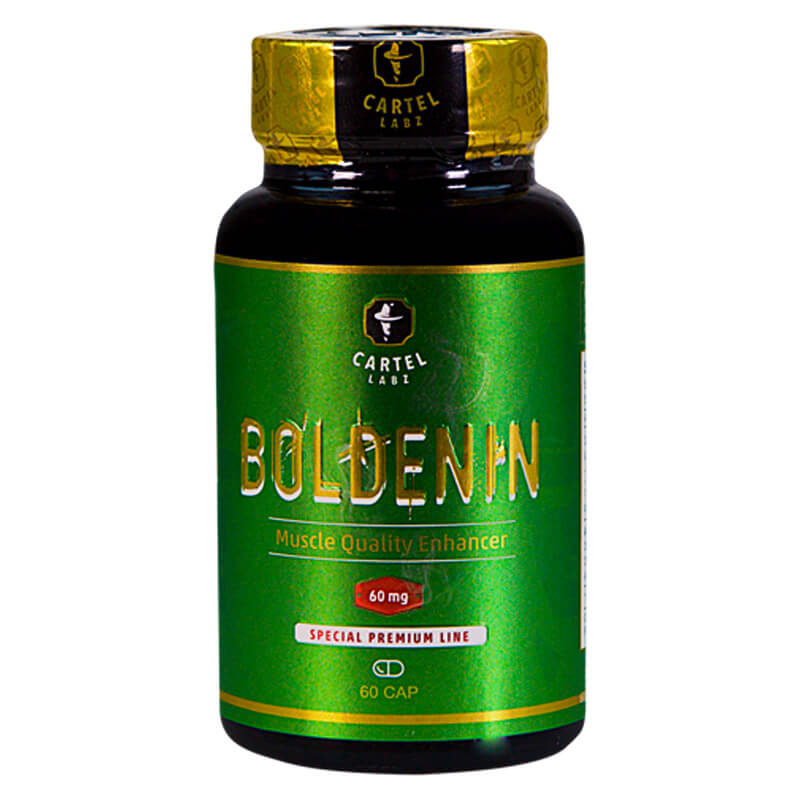
Cartel Labz Boldenin
1-Androsterone is one of the most powerful prohormones and works almost identically to testosterone.
With Boldenin you can build up quality mass in no time and lose fat at the same time.
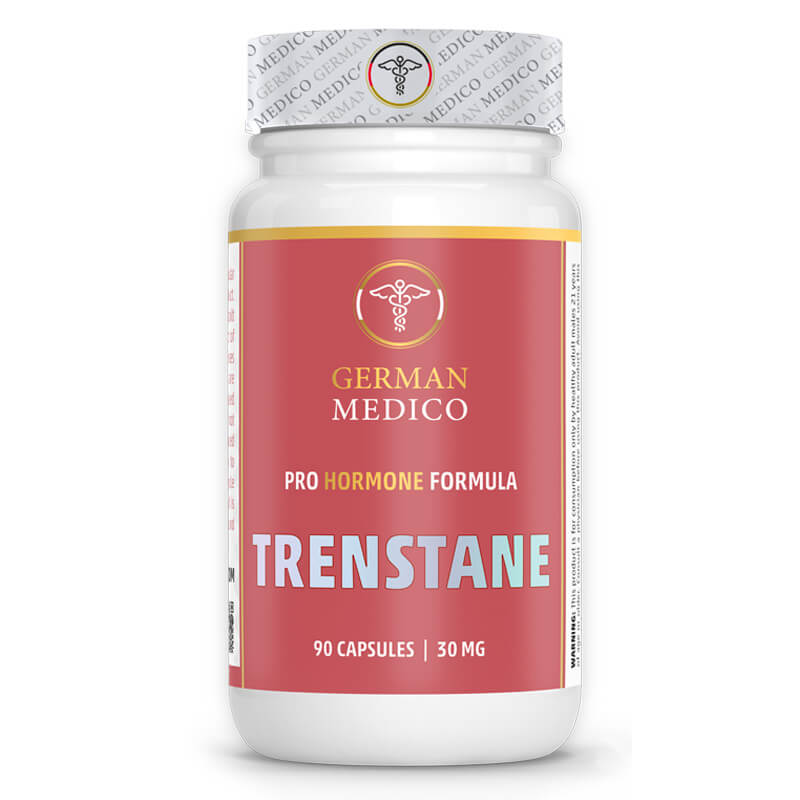
GERMAN MEDICO Trenstane
Trenstane can have benefits such as increased libido, improved muscle mass and increased bone mineral density.
With an effect comparable to trenbolone.
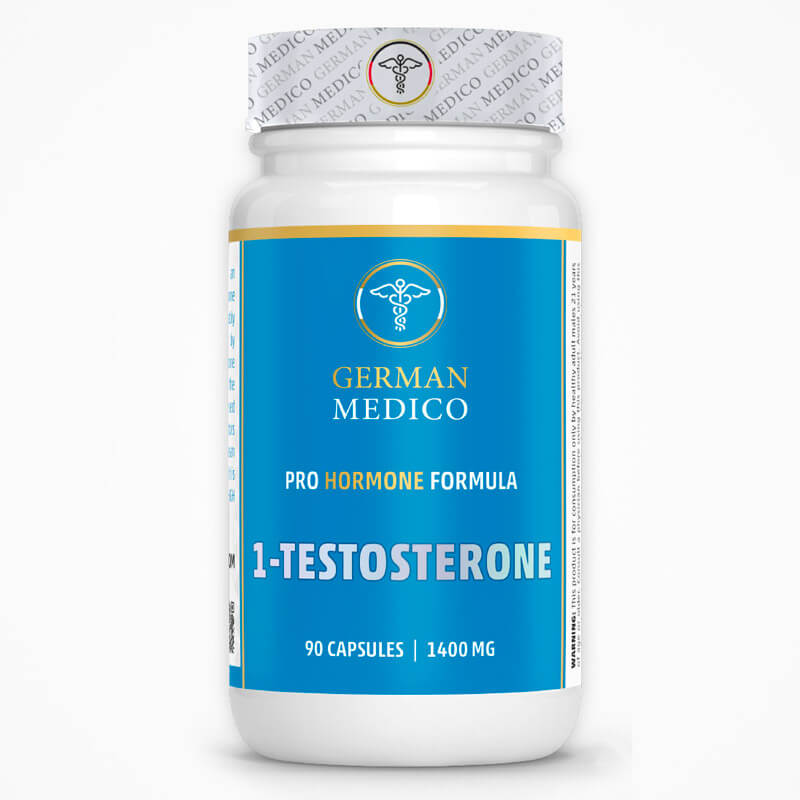
GERMAN MEDICO 1-Testosterone
Compared to testosterone, 1-Testosterone has a higher binding affinity to androgen receptors and a lower affinity to estrogen receptors, which means it is less likely to cause estrogen-related side effects such as water retention or gynecomastia.
Conclusion
To build muscle and bulk up, you need to focus on eating enough quality calories every day. Start by calculating your basal metabolic rate (BMR) using the Harris-Benedict equation, then factor in your activity level to determine your maintenance calories. From there, add at least 500 calories daily to ensure steady weight gain.
Avoid relying on junk food; instead, build a diet rich in protein, healthy fats, and plenty of vitamins and minerals. This balanced approach supports healthy weight gain, helping you build muscle rather than accumulating fat. A high-quality weight gain supplement can also help you reach your calorie targets if needed.
With your diet and supplements in place, check out our training guide for hardgainers to maximize your gains and make the most of those extra calories.
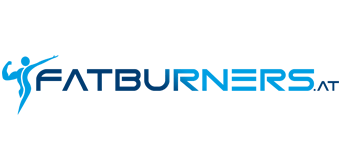

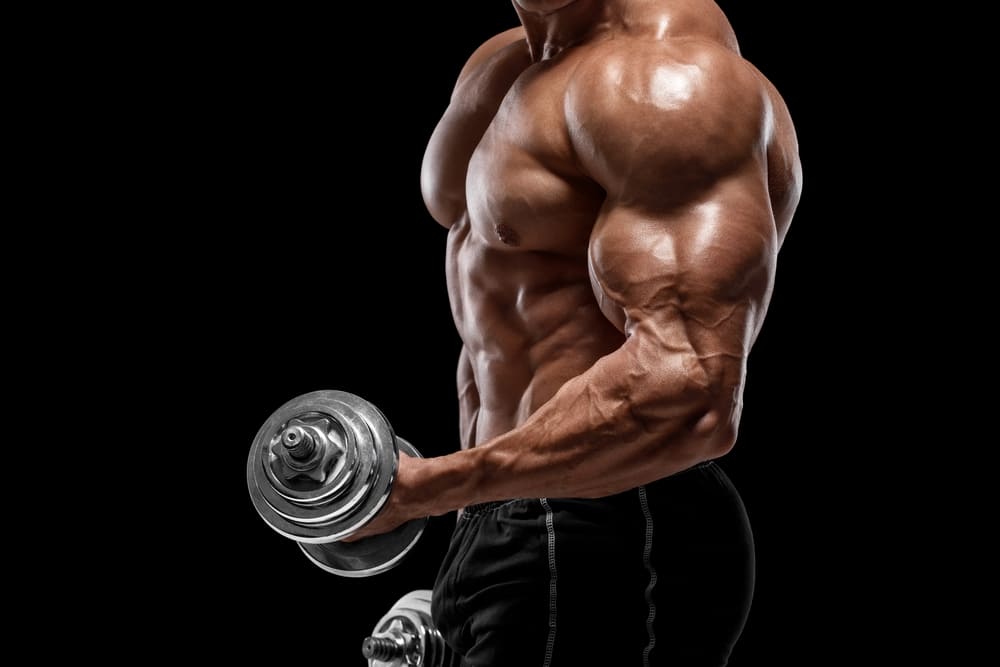













Leave a Reply
Want to join the discussion?Feel free to contribute!